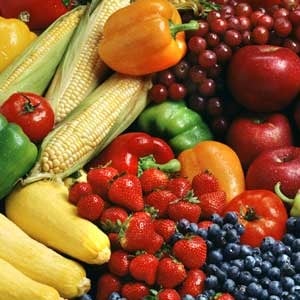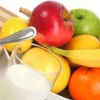
If you're HIV-positive, then nutrition and HIV is an important subject to focus on and understand, explains Dr Avron Urison of AllLife.
The reason that nutrition is vital in this regard, is because your body will undergo changes, from both the disease itself and from the medications that one takes. For example, you may experience extreme weight loss, infections, or diarrhea. Another common change is lipodystrophy (fat distribution syndrome) which can cause body shape changes and increases in cholesterol levels. Making improvements in your diet can improve your health and how well you feel. It is therefore important to make educated decisions when making nutrition choices when managing HIV. A registered dietitian (RD) can give you even more guidance.
People with HIV can quickly become malnourished and start to lose weight because the disease has the following effects:
- Appetite loss - people don’t eat as much as they did before they were infected
- Increased metabolism - it speeds up the body’s metabolism which means that additional food is needed to stop the person from losing weight
- Reduced nutrient absorption - it reduces the amount of nutrients the body can absorb from food because the gut becomes damaged by the virus and other types of infections
- Thrush infections - it increases the occurrence of thrush infections in the mouth and throat. The resulting sores can make it very painful for people to eat and swallow.
Benefits of good nutrition
If you are HIV-positive, good nutrition can have several benefits. It can:
- Improve your overall quality of life by providing nutrients your body needs.
- Keep your immune system stronger so you can better fight disease.
- Help manage HIV symptoms and complications.
- Process medications and help manage their side effects.
The basic principles of healthy eating will also serve you well if you are HIV-positive. These principles include:
- Eating a diet high in vegetables, fruits, whole grains, and legumes.
- Choosing lean, low-fat sources of protein.
- Limiting sweets, soft drinks, and foods with added sugar.
Dietary advice should be tailored to individual circumstances, however, in general the recommendations for people living with asymptomatic HIV infection are much the same as for everyone else, meaning a healthy, balanced diet. Only three differences are worth noting:
- Because people with untreated HIV tend to burn more energy, the total number of calories should be around 10% higher than the usual guideline amounts, and up to 30% higher during recovery from illness. The balance of fat, protein and carbohydrates should remain the same.
- Many experts recommend a daily multivitamin (usually without iron, except in menstruating women or people with iron deficiency).
- The World Health Organisation recommends vitamin A supplements every 4-6 months for young children living with HIV in resource-poor settings.
Maintaining good balanced meals
HIV positive people suffering loss of appetite may need to make an extra effort to ensure they are eating enough. Helpful suggestions include eating several small meals per day, exercising to stimulate appetite, possibly mashing or liquidising food to ease swallowing, and seeking advice from a health provider or dietician. To make sure someone with HIV disease maintains a good nutritional status, it is therefore important to do the following:
- Increase overall food intake to provide more energy and prevent wasting. This is best done by eating more high-protein foods such as all types of dried beans, fish, chicken, meat, eggs and dairy products with extra helpings of high-energy foods such as pap, samp, bread, potato, rice, pasta, oats, sorghum, millet and dried beans. Fats and oils are high in energy and can be eaten in moderation.
- Increase the consumption of foods rich in vitamins and minerals as these protect against infections. Good vitamin-rich foods include all types of fruit and vegetables, especially green leafy vegetables and all types of red, orange and yellow fruits and vegetables. Whole grains, dried beans, fish and meat are also rich in the B vitamins and minerals that are important for maintaining a good immune system.
If other approaches have failed to reverse wasting, then doctors may recommend a liquid food supplement, an appetite stimulant, or resistance exercise to build muscle. Other possibilities include steroids and hormone treatments, though these can be expensive and have serious side effects.
(Dr Avron Urison, Medical Director at AllLife Pty Ltd - providers of life insurance for HIV positive individuals)




 Publications
Publications
 Partners
Partners










